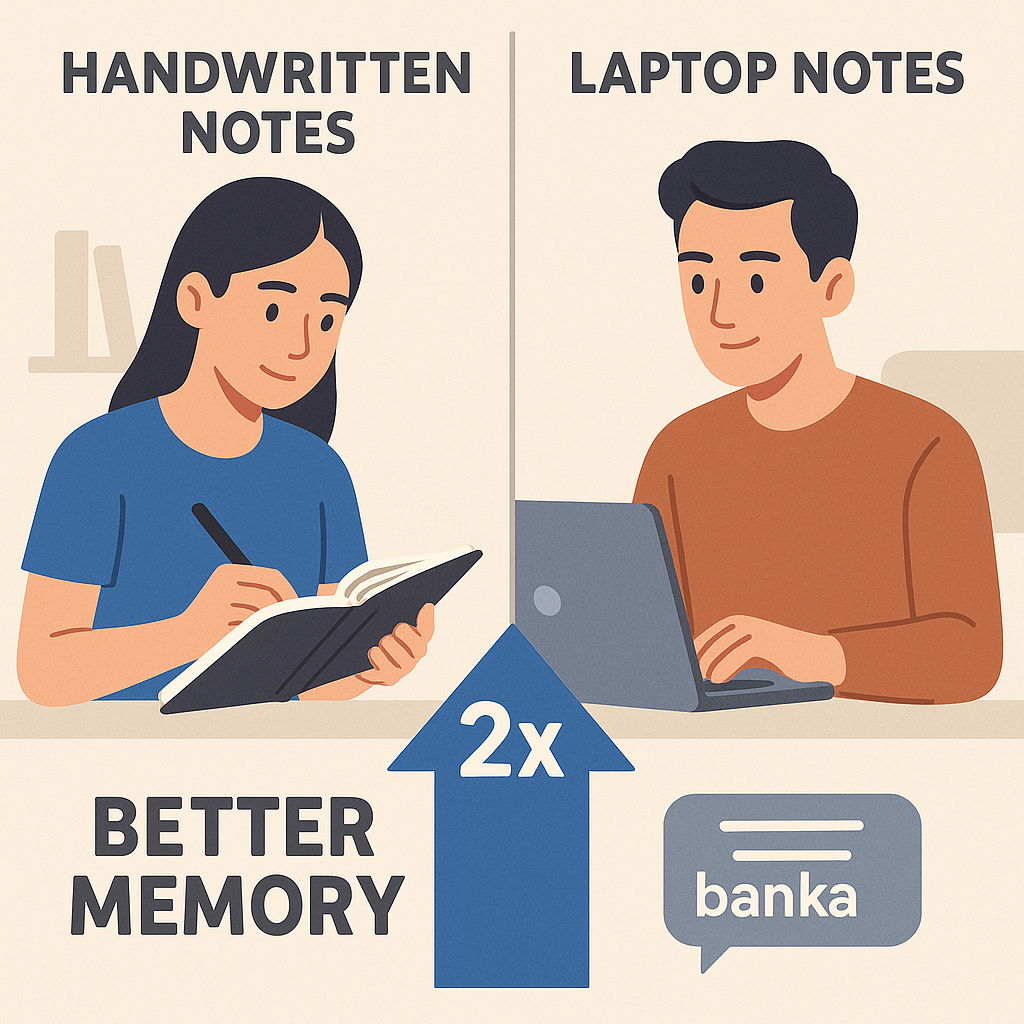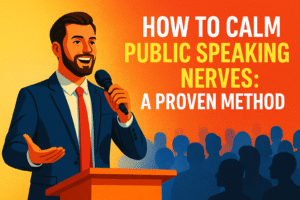Learn not for grades, but for life
A surgeon can’t “Google” a vital step during surgery. A pilot can’t “try to recall” what to do when the engine fails. This is crucial not only for professionals, but for each of us. When you’re taking an important exam or speaking with a key client, you can’t afford to recall information at critical moments. Your memory must work instantly.
The book “Make It Stick: The Science of Successful Learning” offers effective learning methods that work even under stress.
But here’s the problem: we’ve been taught methods that science has shown to be ineffective — rereading, highlighting text, and focusing on one topic at a time.
In this article, I’ll share five science-based strategies that will change the way you learn.
- Retrieve knowledge, don’t just reread
Myth: Rereading is the best way to learn.
Reality: It creates the illusion of knowing.
Imagine two students:
• One reads a chapter for an hour and highlights the main points.
• The other uses flashcards to test themselves.
The first feels confident — everything seems familiar. The second feels a bit nervous — facts don’t come easily. But the second will do better on the test. Why? Because they practiced retrieving information from memory. This is called the Testing Effect.

📚 More on the Testing Effect
🔧 How to apply:
• After reading, close the book and try to recall the main ideas.
• Don’t just skim your notes — test yourself regularly.
- Learn in parts: Spacing is better than cramming
Myth: It’s better to learn everything in one night.
Reality: The brain remembers better with breaks between sessions.
It’s like watering a garden: if you pour a bucket all at once, the soil won’t absorb it. But regular watering helps the roots grow. The same goes for learning — don’t rush, let knowledge settle.
📚 Spacing Effect: Why Intervals Work
🔧 How to apply:
• Break learning into short sessions. For example, 30 minutes a day over a week.
• Come back to the material after a pause — this strengthens memory and prevents overload.
3. Mix up methods and topics
Myth: You should focus on one topic.
Reality: Switching between skills leads to deeper understanding.
Imagine a workout: would you only practice dribbling, ignoring passing and shooting? Of course not. The same goes for learning — combine topics and techniques.
📚 Interleaving Effect: How Mixing Improves Learning
🔧 How to apply:
• Don’t study everything in one block. Start with math, then reading, then back to math.
• Yes, it’s harder, but your brain works more actively and remembers better.
4. Embrace difficulties
Myth: Learning should be easy.
Reality: Struggles stimulate growth.
When something feels hard — it’s a sign your brain is working. Scientists call this Desirable Difficulties.
📚 What Are Desirable Difficulties
🔧 How to apply:
• If the material feels easy — make the task harder.
• Try explaining it to someone else.
• Make learning a challenge. That’s the path to deep understanding.
5. Explain in simple terms
Myth: If you understand it yourself, that’s enough.
Reality: Explaining to others is the best test of understanding.
Einstein once said:
“If you can’t explain it simply, you don’t understand it well enough.”
Explaining reveals knowledge gaps and strengthens understanding.
📚 Feynman Technique: How Explaining Helps Learning
🔧 How to apply:
• After studying a topic, explain it in your own words.
• Imagine you’re telling a friend or a child.
• Use images and analogies:
For example, compound interest is like a tree that bears fruit, and those fruits grow into new trees.
👉”Mental Upgrade” is your guide to transformation: from fear to strength, from chaos to clarity, from survival to dream. Enter your email below to receive your free chapter.
Bonus: 5 quick tips
- Don’t limit yourself to your “learning style.” Visual or auditory — these are preferences, not limits. Try different formats.
- Avoid the illusion of knowing. If something seems clear — test yourself without looking.
- Develop a growth mindset.
📚 Growth Mindset (Carol Dweck)
- Make mistakes — and learn from them. Mistakes activate memory.
- Aim for deep understanding, not memorization. Like in chess: it’s not about remembering the board, but understanding the strategy.
I’d like to share another interesting study related to this topic — ✍️ The Rule of Effort: How Note-taking Method Affects Memory.
Researchers at Princeton University conducted a study in 2014 by organizing students into two distinct groups.
Researchers asked students to take notes in two different ways:
• The first group wrote by hand.
The old-school method with pen and paper. It caused many sighs and groans, as it required much more effort, time, and hand fatigue.
• The second group was asked to type notes on their laptops, phones, or other devices. This method was much faster. As a result, the second group ended up with about twice as many notes as the handwriting group.
The goal of the study was to find out which method helps retain learning material better.
📊 Study Results
At the end of the semester, the researchers looked at the grades of both groups — and to their surprise, they saw: Students who wrote by hand scored twice as high as those who typed their notes.
That’s a significant difference. At first, the researchers assumed that perhaps the handwriting students had to compensate by studying more outside of class.
So they ran the same experiment two more times:
• Once, they tested the students immediately after class, so they had no time to review the material.
• The second time, they gave an unannounced test to both groups just a week later.
In both cases, the students who wrote by hand performed twice as well as those who typed.
🔑 The Rule of Effort The results of this experiment are what I call “The Rule of Effort.”
In general, the more effort you put into learning something, the better you will retain it. I believe this idea holds great value in the world of self-development.
🎧 The Problem of Consuming Without Retaining
One of the biggest challenges in personal growth is the sheer volume of information available:
• Hundreds of thousands of books,
• Videos,
• Podcasts…
But what does it matter if you can’t remember anything you read or watched — or apply what you’ve learned?
I know, I know — I’m the one who encouraged you to listen to audiobooks. I mention that often.
BUT!
Honestly, I don’t believe that just listening to audiobooks is the answer to everything. It’s too easy — and it doesn’t require much effort.
📒 Personal Approach: The Note-Taking Habit
Here’s one simple but powerful habit I’ve developed: I always carry a small waterproof notebook with me. It’s even smaller than my phone — super convenient. Every time I’m listening to a book and have that “Aha!” moment the moment when something just clicks, when you finally understand something that didn’t make sense before — you must capture it. When that happens, I make the effort to write it down immediately.
📚 Example from David Goggins’ Book
For example, a couple of weeks ago I was listening to Can’t Hurt Me by David Goggins and had a big “Aha!” moment when he talked about his “Cookie Jar” method. The moment I heard it, I thought to myself, “This is incredible!” This is seriously powerful. I HAVE to remember this.” So I put the barbell down, paused the audiobook, pulled out my notebook and wrote: “Cookie Jar method.”
Then I jotted down a short summary of the concept, and even rewound the section a few minutes to listen to it again.
🔁 Effort + Repetition = Retention
If you think about it, I put in 10–20 times more effort into that section than I normally would just by listening passively.
That’s exactly why I still remember it clearly.
On top of that, to make sure the lesson sticks with me for life, I make a habit of mentioning it in conversations whenever I can —which reinforces it even further.
🗣 How Explaining Helps You Remember
I’ve got friends who are also into self-development. So whenever we’re just hanging out, I’ll share these new ideas with them.
When you explain something you just learned to someone else,
you’re applying even more effort — and that leads to even better memory retention.
📌 Bottom Line:
If you want to remember something — make an effort. Write it down. Talk about it. Use it. If you follow these strategies, you’ll not only learn more effectively, but you’ll be able to recall and apply that knowledge exactly when it matters most — like a surgeon, a pilot, or a true professional who’s growing every day.
Keywords: effective learning, how to remember better, science-based study methods, spaced repetition, testing effect, retrieval practice, how to learn faster, Feynman Technique, desirable difficulties, learning without cramming, memory strategies, cognitive science learning, memory and learning, brain development.





